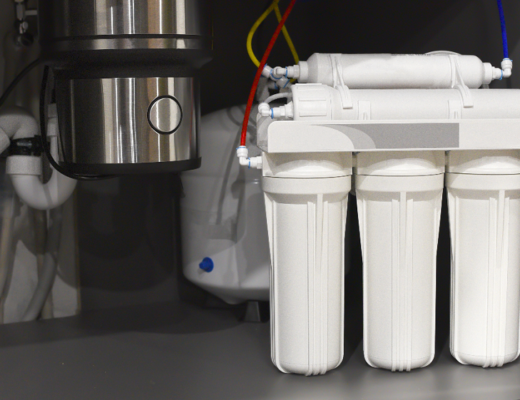Did you know that every year, approximately 600,000 people are diagnosed with a condition that can disrupt the rhythm of their heart? The human heart is a marvel of engineering, tirelessly pumping blood to sustain life. This vital organ relies on a complex electrical system to maintain its rhythmic beat. However, disruptions in this electrical system can lead to a condition known as “heart block.” In this blog, we’ll explore the intricacies of heart block, its different types of heart block, and the warning signs you should be aware of. If you or someone you know show any symptoms of heart blockage, you should visit the best hospital in Delhi.
Understanding Heart Block
Definition of Heart Block
Let’s begin by understanding the fundamentals before exploring the various types and symptoms of heart block. Heart block is a condition that impacts the electrical impulses responsible for regulating the heartbeat. These crucial signals coordinate the contraction of the heart’s chambers, ensuring efficient blood flow throughout the body.
The Electrical System of the Heart
To fully understand heart block, it’s important to have a clear understanding of how the heart’s electrical system operates. The heart possesses its own internal “natural pacemaker” known as the sinoatrial (SA) node, which generates electrical signals. These signals then travel through the atria of the heart, prompting them to contract and push blood into the ventricles.
Subsequently, these electrical impulses pass through what is called the atrioventricular (AV) node, serving as a gateway connecting the atria and ventricles. After passing through this node, the signals move along specialised pathways that stimulate the ventricles into contraction, enabling blood to be pumped throughout the body.
How Heart Block Disrupts the Electrical Signals
Heart block happens when electrical signals from the atria to the ventricles get interrupted or delayed. This can be caused by factors like damage to the heart’s electrical pathways, heart diseases, or congenital conditions. The severity and location of the blockage determine how heart block presents itself, with each form having its own symptoms of heart block.
Types of Heart Block
First-Degree Heart Block
- Explanation of First-Degree Heart Block: First-degree heart block is a mild form of heart block where electrical signals in the heart are delayed, but still eventually reach the ventricles.
- Causes and Risk Factors: Age-related changes, medication side effects, and other medical conditions can contribute to this issue. While it typically doesn’t require immediate concern, it may need regular monitoring.
Second-Degree Heart Block
- Explanation of Second-Degree Heart Block (Type 1 and Type 2): Second-degree heart block is a condition where there are occasional interruptions in the transmission of electrical signals between the upper and lower chambers of the heart. There are two types of second-degree heart block: Type 1, also known as Wenckebach, and Type 2, also known as Mobitz II. Each type has unique patterns of signal blockage.
- Causes and Risk Factors: Second-degree heart block is frequently linked to pre existing heart conditions, specific medications, or injury to the electrical pathways.
Third-Degree (Complete) Heart Block
- Explanation of Third-Degree Heart Block: Third-degree heart block is the most severe and concerning type of heart block. It occurs when there is a complete interruption of electrical signals between the atria (the upper chambers) and ventricles (the lower chambers). As a result, each chamber beats independently, causing a lack of coordination in the heartbeat.
- Causes and Risk Factors: Third-degree heart block often arises due to significant damage to the heart, congenital heart defects, or specific diseases. It is a grave condition that necessitates prompt medical attention.
Symptoms of Heart Block
Common Symptoms
- Slow or Irregular Heartbeat: One of the hallmark symptoms of heart block is a slow or irregular heartbeat (bradycardia). This can lead to a feeling of palpitations or fluttering in the chest.
- Fatigue: Reduced blood flow to vital organs can result in fatigue, weakness, and a lack of energy.
- Feeling dizzy: Feeling dizzy or lightheaded is a common symptom of inadequate blood supply to the brain, particularly when changing positions from sitting to standing.
Severe Symptoms
- Chest Pain or Discomfort: Chest pain or discomfort can be a symptom experienced by individuals with heart block. This is often caused by insufficient blood flow to the heart muscle.
- Fainting (Syncope): In severe cases, heart block can lead to fainting episodes, which can be life-threatening if left untreated.
- Shortness of Breath: Inability of the heart to pump blood effectively may result in shortness of breath, especially during physical activity.
Symptoms in Infants and Children
It’s important to note that infants and children can also develop heart block, often due to congenital factors. Symptoms in this age group are poor feeding, slow growth, and a bluish tinge to the skin (cyanosis) due to reduced oxygen levels.
When to Seek Medical Help
Recognizing the warning signs of heart block is crucial for timely intervention. While some forms of heart block may not be immediately life-threatening, others demand urgent medical attention. If you or someone you know experiences severe symptoms like chest pain, fainting, or difficulty breathing, seek emergency medical care without delay.
Diagnosis and Treatment
Diagnostic Tests for Heart Block
Diagnosing heart block typically involves several tests, including electrocardiograms (ECGs or EKGs), Holter monitoring, and echocardiograms. These tests help healthcare providers assess the severity and type of heart block.
Treatment Options
- Medications: In some cases, medications like beta-blockers or pacemaker medications may be prescribed to manage symptoms and improve heart function.
- Pacemakers: For more severe forms of heart block, the placement of a pacemaker may be necessary. A pacemaker is a small device implanted under the skin that helps regulate the heartbeat by delivering electrical impulses to the heart when needed.
Management and Lifestyle Changes for Heart Block Patients
Patients with heart block often benefit from lifestyle changes, including a heart-healthy diet, regular exercise (as advised by their healthcare provider), smoking cessation, and managing underlying health conditions.
Preventing Heart Block
While some forms of heart block are not preventable due to congenital factors, there are steps individuals can take to reduce their risk:
- Lifestyle Factors: Maintain a healthy lifestyle by eating a balanced diet, exercising regularly, and avoiding smoking and excessive alcohol consumption.
- Regular Check-Ups and Monitoring: Regular check-ups with a healthcare provider can help detect heart block and other heart conditions early, allowing for timely intervention.
- Awareness and Early Intervention: Educate yourself about heart health and the warning signs of heart block. Prompt recognition and heart block treatment can make a paramount difference in outcomes.
Conclusion
To sum up, heart block is a condition that affects the heart’s electrical system, resulting in various symptoms, some of which can be very serious. Identifying the warning signs, seeking immediate medical care, and adhering to recommended treatments can greatly enhance the quality of life for individuals with heart block. Making heart health a priority by adopting healthy lifestyle habits and scheduling regular check-ups is still the most effective strategy for preventing heart block and other cardiac conditions.
Afraid you might be at risk of heart diseases? Visit a super-speciality hospital today!




